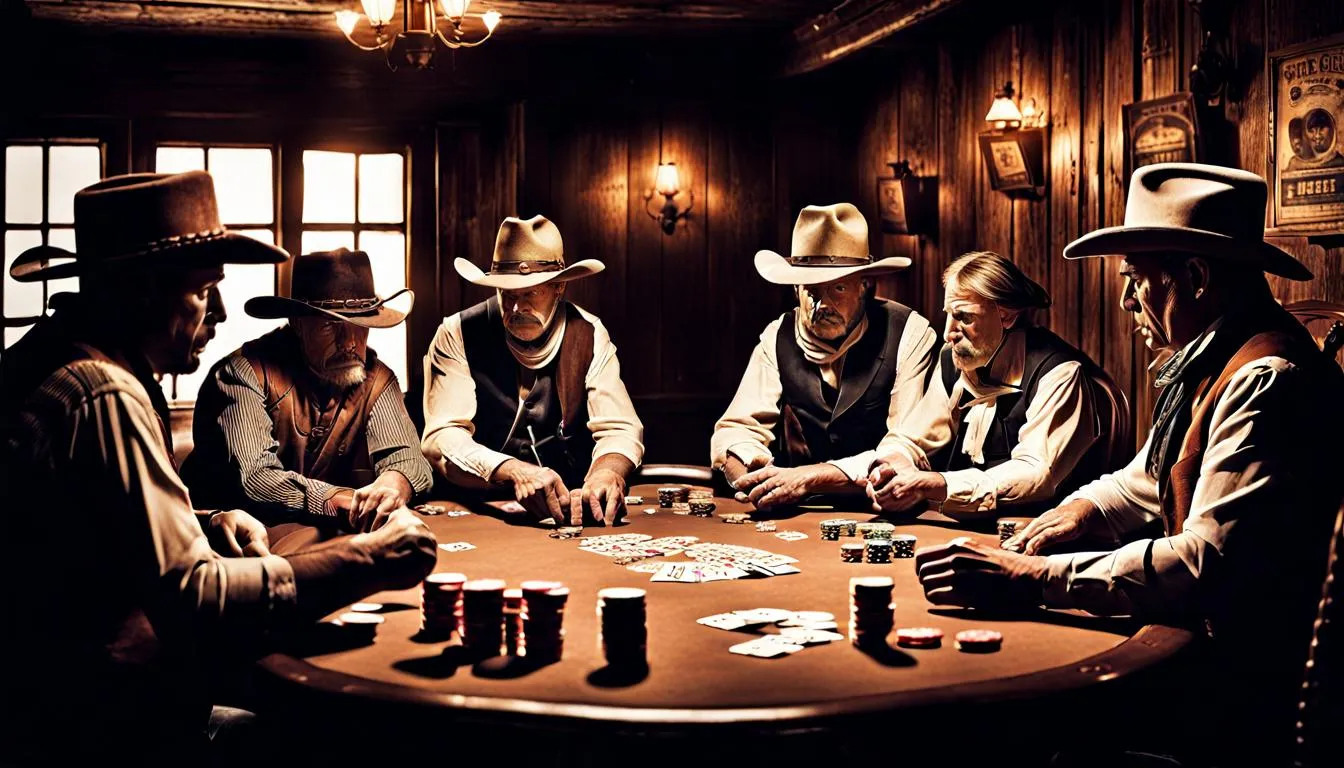Poker is an inexhaustibly entertaining game of skill, yet can quickly turn to luck, making it popular among the Wild West’s rough-and-tumble citizens.
The 19th century saw significant developments and signature variants to the game that contributed to its ever-increasing popularity and distinctive identity.
Origins
Poker first made its mark during the late 1800s in the Wild West. Although its exact origins remain ambiguous, most scholars believe that its roots lie with French games of glic and poque, which in turn likely stemmed from As-Nas. Poker later inspired riverboat gamblers such as Faro; these gamblers included criminals, cardsharps and hustlers who used violence to ensure honesty during play.
This game quickly spread up the Mississippi and into America’s Wild West, where it quickly became an institution in saloons and mining settlements. Even American soldiers and diplomats visiting Europe brought it with them!
Rules
Over time, the rules of poker have evolved. As its popularity increased, standardizing rules to ensure fair play and uniformity became necessary; rulebooks were published during this time as part of this evolution, setting the groundwork for its dominance today.
Courts applying the dominant factor test to poker have often relied on qualitative estimates from experts as to the proportion of skill to luck that plays into each hand’s outcome, yet this paternalism has restricted an increasingly lucrative industry and restricted personal freedoms.
Variations
Poker comes in various variations that alter its rules and strategies. Some variations use different hand values or betting intervals; others require players to exchange money for chips; all share certain core fundamentals.
The dominant factor test is an effective tool that courts can use to help them determine whether poker constitutes gambling. Unfortunately, courts frequently misuse this test when they rely on qualitative analysis and analyze only one hand at a time.
As attitudes surrounding gambling evolve, more states will recognize the necessity of treating poker as it should be–as an exercise of skill.
Betting intervals
Poker is an engrossing card game requiring skillful strategy; success requires minimizing losses with poor hands while taking full advantage of those that come your way, while maximizing wins with good ones. It can be enjoyed socially for pennies or matchsticks or professionally in casinos; with hundreds of variations available and rules that vary considerably from version to version.
Courts often apply the dominant factor test to decide whether a game falls under gambling laws. Unfortunately, however, most courts have misused this test by using qualitative assertions rather than quantitative evidence as their basis for their rulings. With attitudes shifting away from moral disapproval towards legalization and regulation of gambling activities, courts should no longer manipulate this test so heavily.
Symbols
Though there are numerous variants of poker, its basic rules remain the same. Many players add personal flair by adding embellishments such as different suits for different cards or using decks other than 52 cards altogether.
Courts historically misused the dominant factor test to maintain poker as an unacceptable form of gambling, but as attitudes about gambling change nationwide, courts no longer need to treat poker with undue hostility; rather they can look towards the favorable court treatment given daily fantasy sports for guidance when conducting an analysis of its skill.
Misdeals
Poker’s popularity flourished throughout the 19th century. It quickly became a mainstay in saloons, drawing cowboys, gunslingers, and other legendary figures from its world of saloons – and its dramatic tension and strategic depth mesmerized audiences to forge its cultural legacy.
As the game gained popularity, its rules needed to be standardised to ensure fair play and consistency – this led to numerous rulebooks being published, such as Hoyle’s Rules of Games. A misdeal is any error during dealing that results in collecting, shuffling, and redelivering cards – this may occur due to two exposed cards, rules violations or other factors.
Deaths
Poker has grown increasingly popular over time. Its widespread availability and combination of strategy and chance have contributed to its growing appeal; this in turn led to numerous innovations such as online platforms that enable players to participate in thousands of hands at lightning speed.
Poker’s origins can be traced to New Orleans during the early 19th century, where its popularity spread among French colonists to English-speaking settlers along the Mississippi River and beyond. Its closest predecessors in European games such as Brag, primero and brelan all contain elements found within poker that bear some similarity.













